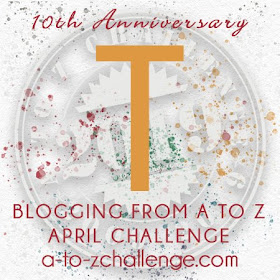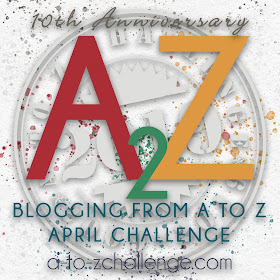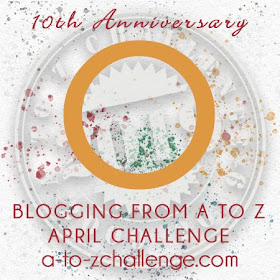

1- The Sidewalk's Regrets just came out. Tell us about it!
It’s probably my most personal story and it’s based on things I’ve seen happen to far too many people and bands I’ve loved over the years. It’s about a seventeen-year-old girl who thinks she has her whole life and her career as a professional violinist figured out. But when she meets a rock musician and falls in love with him and his music, everything starts changing.
It’s kind of a dark and dirty love story about how overwhelming first love can be, how you can lose yourself in someone and how hard it can be to find your way back.
2- You entered Pass or Pages, back before getting on the team. Was it helpful and would you recommend it?
Terrifically helpful! I’ve actually entered a number of times over the years. The feedback you get from agents (or the OA team if you don’t get selected and are lucky enough to get a crit from them) is so valuable.
3- Would you please, in 160 characters or less, give a #WriteTip ?
Writing short stories helps focus on what’s important. Limiting how many words you can use, forces you to tighten your prose and make every word count.
4- What ignited your passion for writing?
That’s a good question. And one I can’t answer because I don’t know. I’ve always written. I had my first story published in the ‘Kids Stuff’ section of the newspaper when I was six, and I’ve never really stopped.
5- What's your Twitter handle, and do you have two or three writer friends on there to shout-out to for #WriterWednesday ?
I’m @vampyr14 on Twitter. And huge shout-outs to @BreannaTeintze who has a fabulous new fantasy book coming out this year, and my amazingly prolific friend @AllysonLindt who manages to release more books a year than I can even comprehend.
6- Would you share a picture with us of your new book and a furry friend?
This is my writing companion, Lola.
She likes jelly meat, chasing butterflies, sleeping in weird places and reading dark, gritty YA.
7- Do you play any instruments?
Not really. I used to play the flute when I was younger, but it’s been a few years since I picked it up. Writing is a time-consuming hobby, and somehow all my other hobbies seem to have fallen to the wayside as I got more serious about writing and publishing.
8- What most motivates you to read a new book?
Usually the description. Covers to a certain degree, but for me it’s more about the content. Or if someone I trust recommends it. But I’ve been burned a few times with that, so I usually like to choose books for myself.
9- What is your favorite book by someone else, what's the author's Twitter handle, and what do you love most about that book? #FridayReads book recommendation time!
Damn you ask some hard questions! How can I just pick one? I have so many books I’ve loved over the years, for so many different reasons. But here’s one I actually re-read recently and loved just as much as I did the first time.
Author name: @Hannahmosk
Title: Not Otherwise Specified
Love because: Voice! If you’re looking for what that means, read this book. Etta’s voice is so strong, right from the first page you can hear her in your head. I loved this story and its unconventional, struggling characters, its realistic, offbeat relationships and basically everything about it.
10- Your veggie profile pick, what's the story behind that?
Ha! That’s a funny story. We went to the A & P Show (like a county fair) in a little place called Takaka which is near my family’s beach house. One of the competitions was a vegetable art contest and that particular piece was one of the runners up. I thought it was kind of hilarious, so decided it would be my author picture since I really hate photos of myself.
11- There's a PitMad rumor you're working on a book in the woods. Can you tell us more?
I’ve been working on this one for a while. I love the story, but somehow I haven’t managed to quite get it right. I’ve re-written it from start to finish a couple of times from different POVs, and am hoping my last revision might be the one that works.
It’s about two strangers who meet on a bridge they are both about to jump off. When an earthquake hits, they find themselves trapped and alone with their secrets and a hostile wilderness. But are they really alone?
12- What are some of your favorite "T" things?
Album: Teenage Snuff Film (Rowland S Howard), Movie: Trainspotting, Spice: Tumeric, Word: Trollop.
13- What do you love about the IWSG?
The sense of community. Writing can be lonely, not to mention really hard and soul destroying at times. Being part of a group of writers who share the same frustrations and struggles really helps sometimes.
14- Top five favorite bands/ music artists?
Gah! Another of these questions? I hate having to list favourites. So much of it is about the mood I’m in on a given day. But okay, some of the artists I have a lot of in my music collection….
Einsturzende Neubauten, Throwing Muses/Kristen Hersh, Nick Cave (and all the different stuff he’s done, from The Boys Next Door to the Bad Seeds and beyond), Muse, Rowland S Howard and Swans.
15- https://diversebooks.org #WeNeedDiverseBooks What's your favorite book with a diverse main character?
To be honest, most of the books I read have diverse main characters, so it’s hard to pick one. The world is a diverse place and people don’t fit into just one little box. I choose books that reflect the world I live in, which is a world where people from different religions, sexual-orientations, cultures, genders and ethnic backgrounds live. Reading offers a glimpse into lives and experiences different to my own, and that’s why I read so much. Sorry… That’s not really an answer to your question, but there are too many great books with diverse protagonists for me to pick just one to mention here.
16- Who is your favorite book review blogger?
It has to be
Dahlia Adler. She and I have such similar taste in books, I trust her judgement, and if she says something is worth reading, I’ll read it.
17- What's the best part of being on the Operation Awesome team?
It’s such a supportive group of writers. I was in a really tight critique group for a number of years and since that kind of fell apart, I’ve missed having a group of writers to just chat with about writerly things. I love having people to bounce ideas off and ask for advice.
18- Why do you think readers should write book reviews?
Writing book reviews helps distil how you feel about a book. Why you like it or why you don’t. I find writing book reviews helps my own writing because when I don’t like something, I’m forced to ask myself why and to figure out a way to articulate what I feel is wrong. That thing is then on my radar, so when reading my own stuff critically, I might notice something I wouldn’t have earlier.
19- What is one question or discussion topic which you would like the readers of this interview to answer or remark on in the comments?
Looking back, I think I’ve talked a lot about community and how supportive the various different writing communities I’m a part of are. So I guess I’d like people to reach out if they would like to connect and be part of my community. If I can help people feel less alone through any part of this journey, I’d like to be there.
20- Anything else you would care to share about your books and yourself?
Well since you asked! Here’s a little bit about each of my books. Any chance to plug them is a good one…
The Sidewalk’s Regrets
Seventeen-year-old Sacha McLeod isn’t looking for someone to rock her world. She just needs a new violin string to replace the one she broke while practicing her audition piece. But when she hears the boy in the music store play guitar, the energy, violence and unpredictability of the music thrills her and she falls hard for Dylan and his wild, inventive sound.
As their attraction heats up, Sacha finds herself spending less time with her violin and more time with this exciting guy who makes her feel things she’s never imagined. Her plans for her violin-virtuoso future - and her self-confidence – are shattered when she screws up the audition for a prestigious summer music program. Failure isn’t something she’s had to face before, so when Dylan asks her to spend her vacation with him in the city, she lies to her parents, pretends she won a place in the summer school, and secretly moves in with Dylan. She’s expecting romance, music and passion, but when she finds herself playing second fiddle to Dylan’s newly acquired drug habit, she realizes despite what the songs say, sometimes love isn’t all you need.
Desperate to understand what’s competing with her for Dylan’s affections, she joins his band and does drugs with him -- just once. But once become twice, three times, and more. As the band's popularity grows, so do the pressures and her drug use escalates. If Sacha can’t figure out how to leave the band, and Dylan, she’ll lose herself and her own music forever.
Stumped
Seventeen-year-old Ozzy has a super-hot girlfriend who’s ready to take their relationship to the next level. Tonight. At the lake.
But a missing condom scuttles his plans for seduction. Furious, Ozzy takes his girlfriend home and drives off -- into the path of an oncoming truck. He wakes up in the hospital with both legs amputated above the knees.
When his girlfriend runs out of his hospital room gagging after a single look at him, Ozzy knows he’s a hideous freak. He becomes convinced he’s blown any chance of finding love, a girlfriend or ever having sex.
Determined to prove he can still be a man, Ozzy throws himself into dumping the burden of his virginity, but finds there’s a limited number of people willing to touch legless dudes in wheelchairs. His obsession takes him into the seedy underworld of brothels and escort services where he discovers the difference between sex and intimacy, and that sometimes the price you pay for getting what you want is much higher than a sex worker’s fee.
An Unstill Life
When your whole world is falling apart, what are the chances you’ll find love in the most unexpected of places?
Livvie feels like she’s losing everything: her two best friends have abandoned her for their boyfriends, her mother continues to ignore her, while her sister, Jules, is sick again and getting worse by the day. Add in the request Jules has made of her and Livvie feels like she’s losing her mind, too.
Her only escape is in the art room, where she discovers not only a refuge from her life, but also a kindred soul in Bianca, the school “freak”. Livvie’s always felt invisible, at school and at home, but with Bianca, she finally feels like someone sees the real Livvie. As the relationship deepens and it comes time to take the romance public, will Livvie be able to take that step?
Livvie’s about to find out if she has what it takes to make the tough decisions and stand up for herself—for the first time in her life.
T is for The Sidewalk's Regrets by Kate Larkindale





























 .
. 
